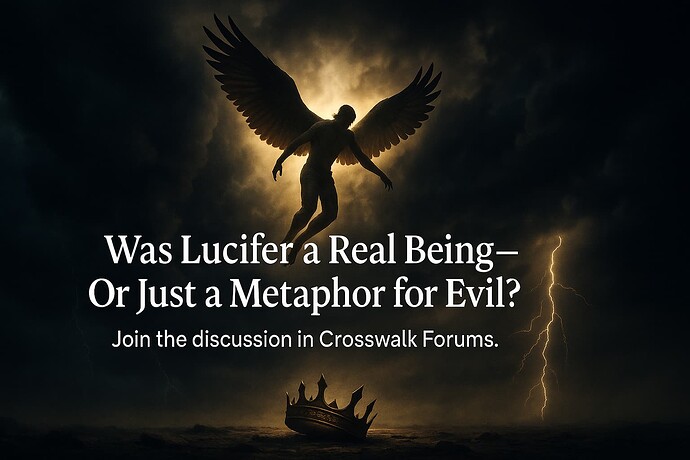Peace to all,
Truthfully, Lucifer is a created being designed exactly to do what he was supposed to do by given functions from the power of the Holy Spirit Family.
Thanks how is everyone? I’ve been working on my Mystic training and here’s what I’ve come up with. I also found out some things. What makes someone able to become a Mystic and it’s very interesting what I found and it seems to be easy to do.
To me Forefathers of the Trinity and the first and third centuries couldn’t figure out the Trinity because they didn’t have my cell number in the 21st-century. To me, they all missed the mark, by seeing the Holy Spirit as a person instead of seeing the Holy Spirit as the family of God one God in being becoming again in all through the Christ in One Holy Spirit Family One God in being and they missed seeing the mother of God, Mary, as The God of mercy pre-existing as queen of heaven and mother of God in intelligence creation, logic before creation was ever created was even created together with the father and the son and one Holy Spirit family.
And we know we are saved through the faith of Abraham, but in understanding the logic of the kingdom of the divine will We can truly see God with new OMNILogical Eyes.
How about a hallelujah?
Truly, Lucifer did help create sin through the power of the Holy Spirit. We know through the power of the Holy Spirit everything comes from. At the same time, Lucifer helped in the creation of love through failed choice to become again fulfilled love through The Passion of The Christ, The Family of God conceived in Jesus becoming again in all. One Holy Spirit Family One God in being loving only and loving with only the most love becoming again both natures transformed glorified and transfigured becoming again One God in being. If you wanna blame sin on Lucifer, you can also blame Him for the creation of love. And also remember, we helped through Adam and Eve, we all would have done ot it’s not God’s fault, nor Lucifers. it’s our fault, becoming again One God, the “Gift” is our fault freely given to us by God with nothing expected in return because this “is” just who God is, to me, when HE says, “Before Abraham, I Am.”
To me logically God‘s spirit is the Holy Spirit intelligence logic that existed before creation was ever created was even created, and follows the pattern of what would Jesus do in all cases of the fulfilled faith and morality through the Christ becoming again One Holy Spirit Family One God in being.
Fulfilled intelligence logic becoming again in mankind, is undefiled and has no chance to fail through logic infallible and OMNIrationallogically? cannot sin. Static eternity will be unfailing forever, yet fulfilled dynamically through his passion, becoming one body and two natures spirit in life never failing.
Man’s freedom to choose is from failed logical intelligence with the power to choose to love or to love not.
Logically Jesus said what is it to you if he should remain alive until I return, you must follow me. Here we see, Jesus is telling faithfully the logical truth, and with respect to which nature?
And the devil lied when he said, surely you will never die. The devil told the truth when he said, surely you will never die. The same story from the father of lies is both a lie and a truth, how is that? The father of lies is such a liar, He can tell the truth and a lie in the same line.
To me some are more logical and faithless and some have faith, but don’t understand the logic yet some are logically faithful.
True, SincereSeeker,We know through faith are we saved through the life and spirit of God but for those that don’t know faith, logic becomes clear faith is a reality.
Logically in the garden of Eden, do you think Adam and Eve had true love?
To me, the logical can become faithful understanding the new eve becoming the immaculate conception through The family of God conceived in the flesh of Jesus becoming the Christ in all mankind becoming again One Holy Spirit one God in being.
Now say that three times fast,
Jesus says I have better and He fulfilled eternal love from both natures through the Christ in His Passion.
Any more logical questions? just kidding. I know I’m just….. Now, how about a hallelujah praise God amen,
Peace always,
Stephen
mystic in training
There is no work greater even possible than for the salvation of souls.
![]() How Did Lucifer Fall and Become Satan? - Bible Study | Crosswalk.com
How Did Lucifer Fall and Become Satan? - Bible Study | Crosswalk.com